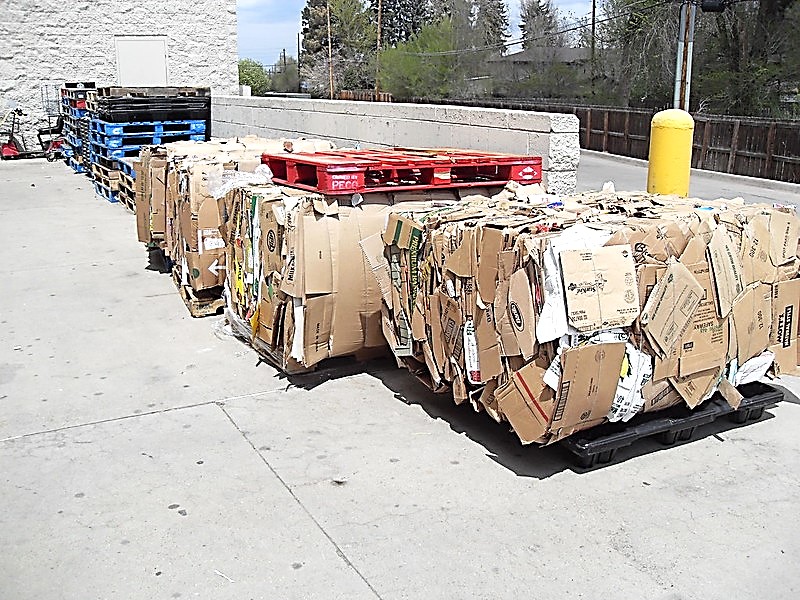Complex economies embedded in the biosphere with the commons restored part 2
Geoff Davies
This is the continuation of the article with the same name that appeared in the previous issue.
Another, and key, distinction to be made is between quantity and quality. It is commonly argued by the defenders of the present regime that it has lifted millions of people out of poverty, although that claim overlooks the many who have been allowed to remain in poverty or dropped back into poverty. The implication being made in this claim is that the quality of the lives of many people has been improved as material wealth has increased. Up to a point that is true, but again this implication must be qualified, because excessive accumulation of ‘wealth’ can reduce quality of life, or can fail to improve it. The point here is that it is really quality of life most people would hope to improve through sensible economic activity.
Turning to quantity, our present regime is extremely profligate with materials [8]. This profligacy can be reduced in three ways: by using materials more efficiently, by reducing our demand for stuff, and by recycling materials so they do not become pollution and we do not need to draw more resources from the Earth. Food waste has become widely remarked, but there are many identified examples where use of materials can be made more efficient. The more wasteful is present usage, the easier it is to reduce waste. ‘Demand’ is greatly inflated within our consumer-capitalist system by marketing and advertising. These have become very sophisticated in inducing us to buy much more stuff than we need for a good quality of life. Finally the potential of recycling is to perennially recycle most materials, either through the organic world if they are organic, or through an extended industrial system if they are not. The living world recycles all materials, and we should seek to emulate it, so as to become part of it again. Products need to be redesigned so they are easily disassembled and so their materials can be easily recovered and remanufactured. This has been called cradle-to-cradle design; products are designed not just for cradle-to-grave use, but to be reborn again as new products [9]. Already in the 1990s Interface Carpet Inc. was able to greatly reduce its materials use through this approach while increasing profits [10].
We can now define a goal to reduce quantity while increasing quality: to reduce the quantity of stuff we use at the same time as we increase the quality of our lives.
This gives us a clear objective while freeing us from pointless and confused semantic debates about whether economic ‘growth’, ill-defined, is good or necessary. Growth of quality is good. Reduction of quantity is good because it allows us to tread more lightly on the Earth, and also because it can allow us to focus our lives more on things that bring us real satisfaction.
Incidentally ‘happiness’ is not necessarily a sensible goal. A good life involves joy and pain, inevitably. It is not healthy to try to be ‘happy’ all the time, we need to allow sadness and grief to run their course as well. What counts is how we navigate the ups and downs and whether we come out the other side of challenging experiences embittered or more robust and wiser. A better goal would be fulfilment.

We need also to distinguish healthy organic growth from unlimited or uncontrolled growth. Multicellular organisms long-since developed internal controls on their growth, so they do not use up all available resources and then starve, and so they do not grow beyond an optimal size and become ungainly and incapable. Traditional human cultures also managed themselves to avoid excessive growth, so their descendants could continue to live good lives indefinitely into the future.
They lived by the ethic of leaving their world in a condition at least as good as it was passed to them by their ancestors. This must be our goal if our descendants are (eventually) able to establish lifestyles that can continue indefinitely into the future.
We come then to the question of why our present industrial civilisation so relentlessly increases its throughput of materials, why it always grows. And more specifically, what is the mechanism that keeps growth going?
We are a materialist society, compared with many past and traditional societies, and the materialism has been raised to new heights by the deliberate cultivation of selfishness and greed. Selfishness is explicit in the neoliberal ideology, which has arisen from the neoclassical stream of economic theory. That theory is pseudo-science: it bears little resemblance to real modern economies and is highly misleading [2,11].
The political emphasis on selfishness is also quite misguided because our abundant experience and evidence shows that we are a highly social and highly cooperative species [12] why else would we have developed our sophisticated capacity for language? Human behaviour is a potent mixture of cooperation and competition, and the challenge and richness of our lives arises from our having to balance the two tendencies the yin and yang of Taoist philosophy.

Greed is clearly a factor that drives material economic growth, yet there is more to it than just greed. The feudal lords were selfish and greedy too, and the lower orders suffered because of them, but feudal society did not grow inexorably, to consume itself and the world.
There have been many societies in which greed was constrained [13], if it existed at all, so we need not resort to the dead-end explanation that greed is just part of human nature. Greed is cultivated in our societies, and consumerist marketing is a major mechanism.
In the neoliberal ideology a person’s ‘labour‘ is just another commodity, to be traded or discarded at will. As a result livelihoods have become very insecure, by design. In our insecurity we are prone to turning on each other.
We have become fractious and divided. Those divisions in turn are exploited by the holders and seekers of power. The conflict consumes our ‘social capital’, the fund of trust required to keep our society functioning.
So selfishness and greed do great damage to the quality of our lives and our societies. Yet they still do not fully explain the perilous situation we are in. Something facilitates or magnifies the effects of greed so it turns our societies into malevolent systems.
A feature of our modern governance is to ensure there is never quite enough of something essential. A prime example at present is employment. For a time, postwar, employment in the developed nations was maintained close to a sufficient level, and our societies prospered. However for decades now employment has been deliberately kept insufficient, under the bogus
guise of combating inflation. So we compete for livelihoods and accept less than we might deserve out of desperation. This keeps us on a treadmill that serves the greedy. The treadmill has been operating for centuries, probably since the land enclosures of late Mediaeval times. This practice of limiting the availability of something essential has been called artificial scarcity by Jason Hickel [7].
Competitive financial markets ensure investment funds are also scarce.
Managers of large corporations are required to maintain a high price for shares in the corporation, and high dividends to shareholders. The benchmarks must be met every calendar quarter, or shareholders might withdraw their funds and invest them elsewhere. In this competitive environment one of the best assurances is to be bigger than the competition, so there is a strong incentive to keep the company growing, by any means available. If all enterprises are striving to grow in this way, then the whole economy will tend to grow. Thus the scarcity of investment funds drives growth.
Politicians are also incentivised to maintain overall growth of the economy. As economies are presently mismanaged, if growth slows then unemployment is likely to rise. Rising unemployment is a politician’s worst nightmare.
Our modern greed is thus fostered and implemented in a way that requires ever more ‘economic growth’, and that growth requires ever more of every-thing: materials, people, land, water, crops, poisons, products, devices and so on. We have built a machine with unlimited demands. There is ever less room for anything else on the planet. Nor is there time to stop and enjoy the sunset, to have surprise and poetry in our lives.
It is possible to manage an economy differently. In the decades after World War II unemployment in the OECD was maintained around 3% or less without excessive inflation [11,14].
This approach could be supplemented, for example, with a job guarantee and a buffer-stock of potential employees who could be drawn back into the larger economy as required [15].
More broadly, we could stop and reverse the enclosure of the modern commons, as Hickel urges. More and more of our activities are enclosed and commodified. Even our entertainments must be ‘streamed’ from one of the giant global entertainment corporations.
Reclaiming the commons requires being able to step off the treadmill and live in our own way at our own pace. This requires that we have the means for a sufficient livelihood. A substantial rise in minimum wages, and all wages, would facilitate this and stimulate the economy [16].
Restoration of many government services that have been removed over the past four decades would help support people living more independently. A universal basic income would directly create a modern equivalent of the commons. The developed economies are wealthy and can well afford such policies if the wealth is so directed.
Implementing such measures would require a major change in our political cultures, but they have in any case become constricting, corrupt and toxic. A significant shift towards a more democratic politics occurred in Australia in 2022, with the election of a cohort of independents. On the other hand the growing urgencies can lead to shifts towards fascism led by ‘strong men’, as has also happened in a number of countries.
Stopping and reversing growth in the material throughput is an essential step towards an economy that is embedded in a healthy biosphere. Such a healthy economy would ensure that growth is of the healthy kind, renewing and provisioning in a circular system with minimal extraction and waste of resources. Any political difficulty in realising such a system is simply a challenge to be met, because there is no other way we can offer our descendants healthy lives into the indefinite future.
Source: Real World Econ Rev, No. 106 http://www.paecon.net/PAEReview/issue106/Davies106
Reproduced with the author’s permission.
Author contact for Dr Geoff Davies: [email protected]

References
Capra, F., The Web of Life. 1996, New York: Anchor Books, Doubleday. 347 pp.
Keen, S., Debunking Economics: The Naked Emperor Dethroned? 2nd revised and expanded ed. 2011: Zed Books.
Buck, J. and S. Villines, We The People: Consenting to a Deeper Democracy. 2007, Washington D.C.: Sociocracy.info. 277 pp.
Daly, H.E. and J.B. Cobb Jr., For the Common Good. 2nd ed. 1994, Boston: Beacon.
George, H. and B. Drake, Progress and Poverty. 1879/2006: Robert Schalkenbach Foundation.
Davies, G., Economy, Society, Nature: An introduction to the new systems-based, lifefriendly economics. 2019, Bristol, UK: World Economics Association. 379 pp.
Hickel, J., Less is More: How degrowth will save the world. 2020, Lond: WIndmill. 320 pp.
Lovins, A.B., Reinventing Fire. 2011, White River Junction, VT: Chelsea Green Publishing.
McDonough, W. and M. Braungart, Cradle to Cradle. 2002, New York: North Point Press. 193 pp.
Anderson, R.C., Business Lessons from a Radical Industrialist. 2010, New York: St. Martins Press.
Davies, G.F., Economia: New Econ-omic Systems to Empower People and Support the Living World.
2004, Sydney: ABC Books. Electronic copy available at http://betternature.wordpress.com/. 12 Greene, J., Moral Tribes: Emotion, Reason, and the Gap Between Us and Them. 2013: The Penguin Press HC. 432 pp.
Graeber, D. and D. Wengrow, The Dawn of Everything. 2021: Farrar, Straus and Giroux. 692 pp.
Bell, S., Ungoverning the Economy. 1997, Melbourne: Oxford University Press. 324 pp.
Mitchell, W. and T. Fazi, Reclaiming the State. 2017, London: Pluto Press. 302 pp.
Davies, G., A New Australia: Discard-ing delusions and organising for the well-being of all. 2023: BetterNature Books. 250 pp.



























